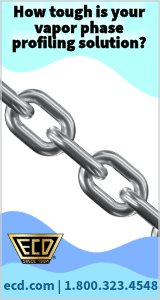|

|
|
|
||||||||
Rosin Flux or Water Soluble - Which To Use?
Board Talk
|
||||||||
TranscriptPhil "What are the major differences between rosin-based fluxes and water-soluble fluxes? And, assuming we have updated equipment and cleaning systems to handle either process, under what circumstances should we use one process over the other?" Jim If we are considering cleaning it is much more desirable to use water-soluble. Why? Because it's designed to be cleaned and in most cases it can be cleaned with heated water, without any additional chemistry. Notice I said, "Most cases." Also, it gives us a much wider window on the activation that we can put in the flux. So, for getting more robust soldering, handling a wider range of solderability, of your materials, your leads and your circuit boards, water-soluble is typically a choice. Most high-rel people, traditionally, have used water-soluble fluxes because they're stronger fluxes, they give a more robust soldering process and they're easier to clean. Because with rosin, you need to use some sort of chemistry, either a saponifier in a water-based system or another solvent. Remember, the electronics world started out with all rosin-based fluxes and we cleaned them with Freons and Tri-Chlor. And that was great, but we can't use Freons and Tri-Chlor anymore, so we have to go to much more sophisticated and expensive solvents. Not that they don't work, but given a choice, we would traditionally use water-soluble. However, the issue of water-soluble compatibility with lead-free soldering temperatures is something that is clouding the waters. The basic scenario that many people are finding is that, at the higher soldering temperatures required for your lead-free alloys, most water-soluble formulas are no longer so easy to clean. And that the possibility of cleaning them with plain water, some people argue, is not reliable - that you have to have add some sort of chemistry. There's a lot of information out there - claims being made - we're not going to support it. We're just reporting that, whereas for tin-lead, most people felt comfortable using water-soluble and getting good cleaning with just water at higher temperatures. Another thing is low-profile components, such as QFNs. They have very small stand-offs that make them more difficult to clean with just water. So, those issues are pushing us towards the use of chemistry, which may re-open the issue of using a rosin-based flux. Since you're going to clean, if you're using chemistry anyway, maybe it's more desirable. I think, from a soldering standpoint, you'll prefer to use a water-soluble flux because of the potential of more, stronger acids. Phil This is Jim Hall and Phil Zarrow of ITM Consulting saying that no matter what type of flux system you use, don't solder like my brother. Jim |
||||||||
Comments
|
||||||||
|
|

|




